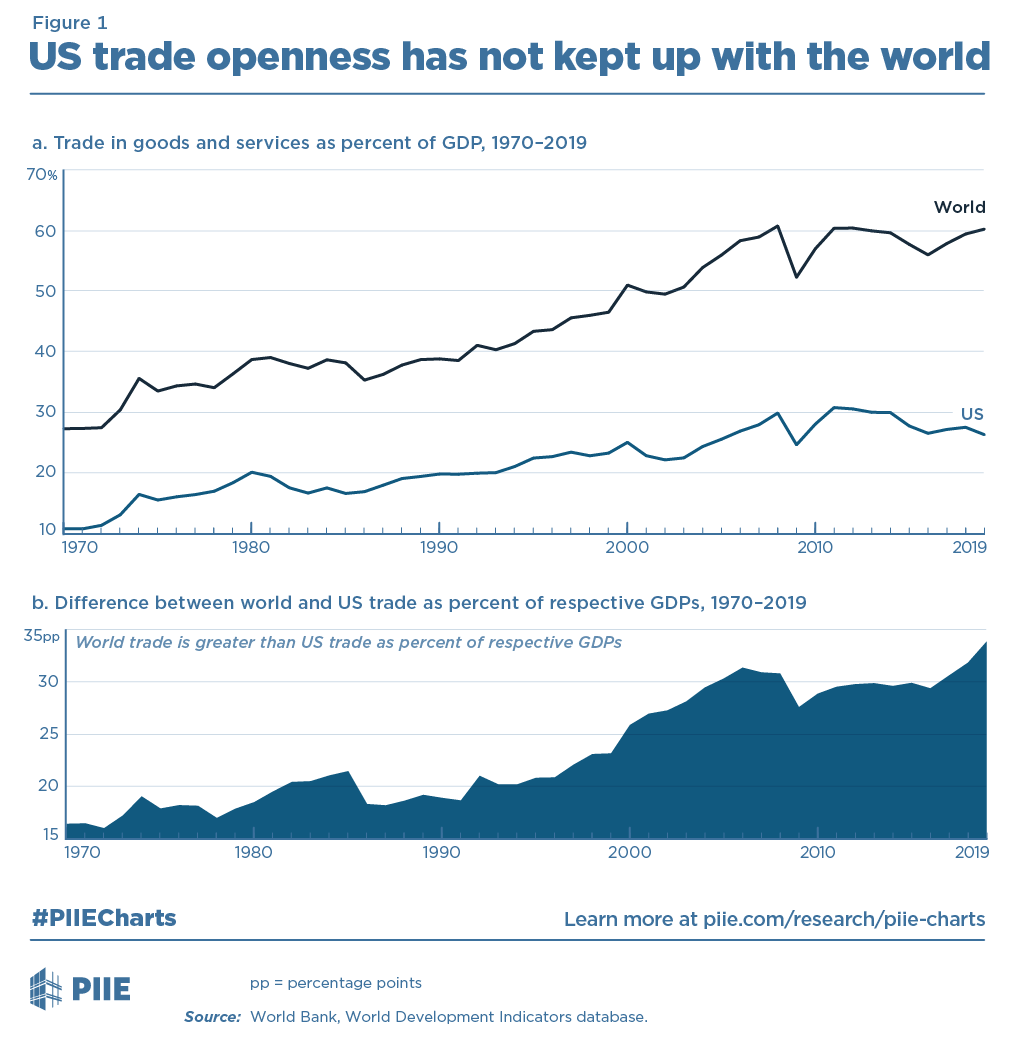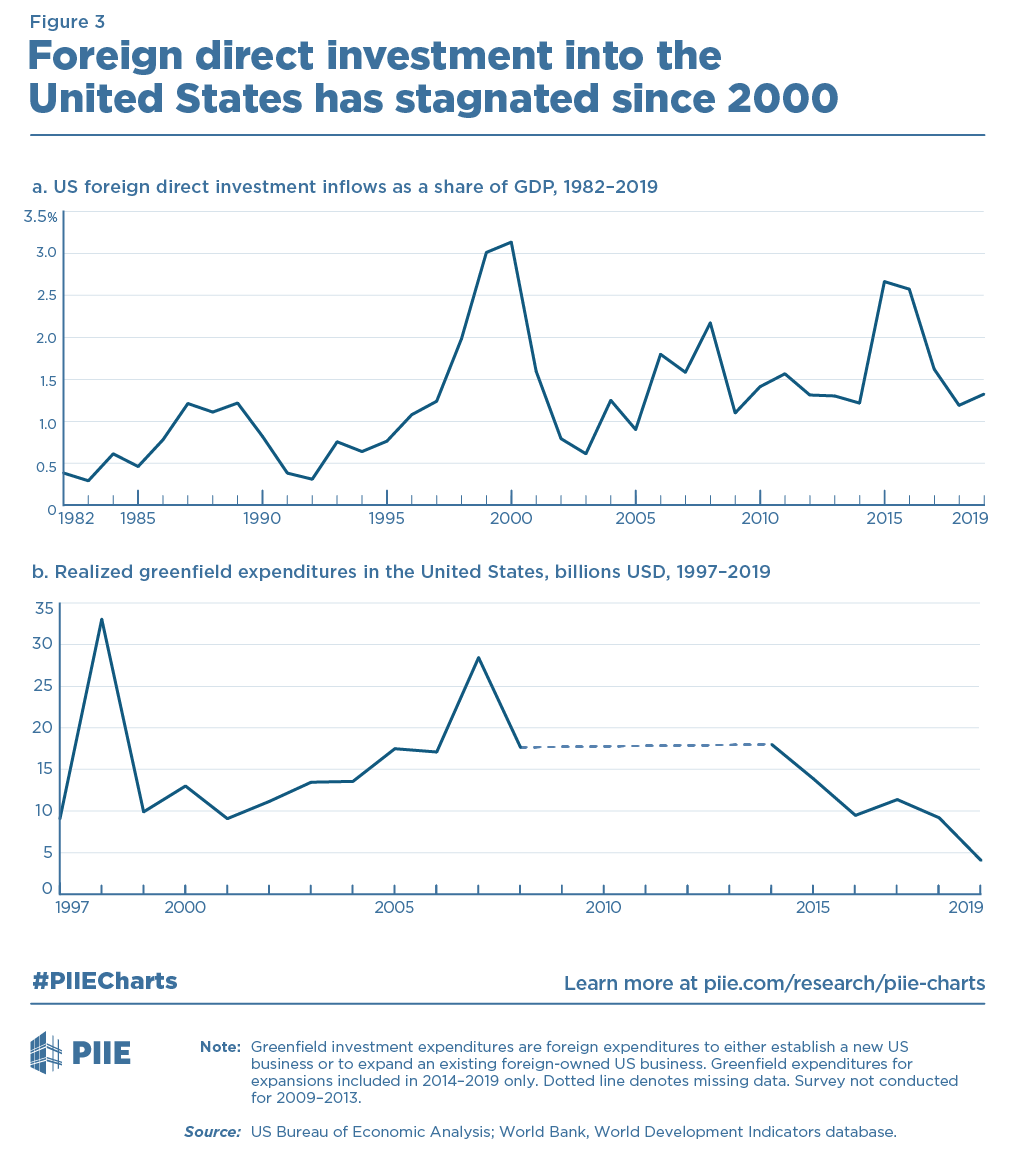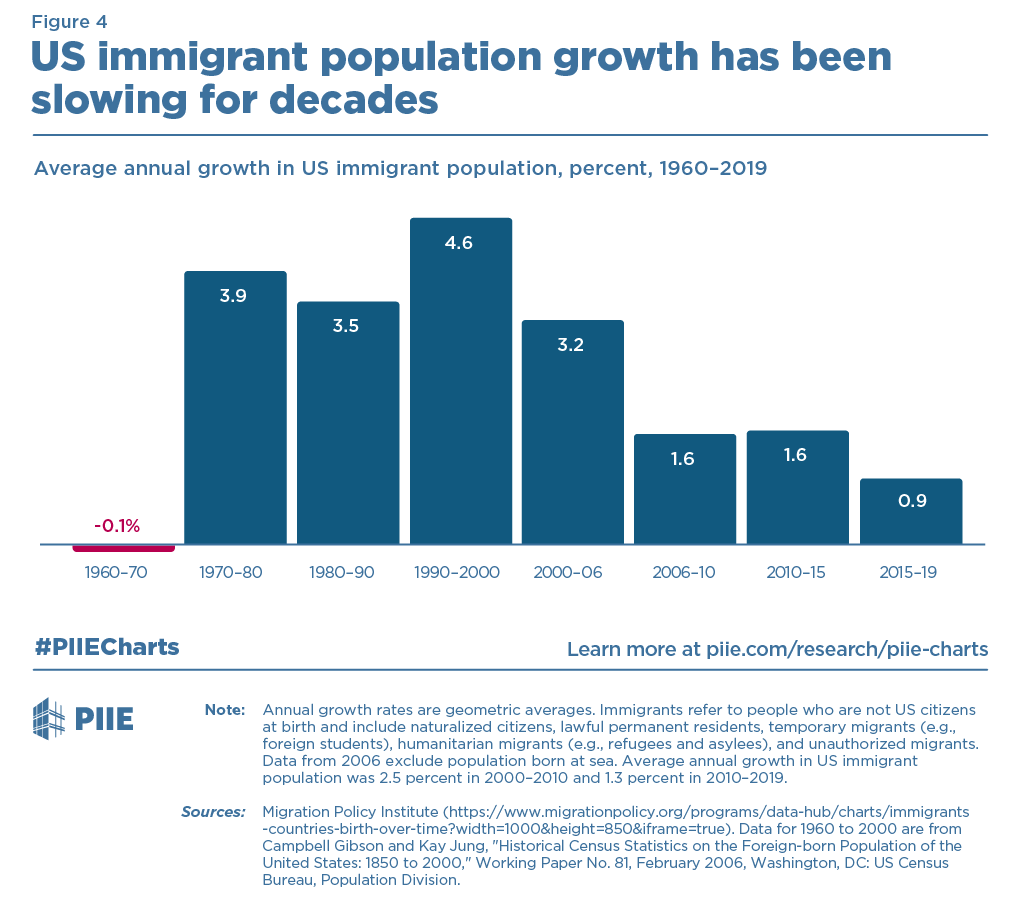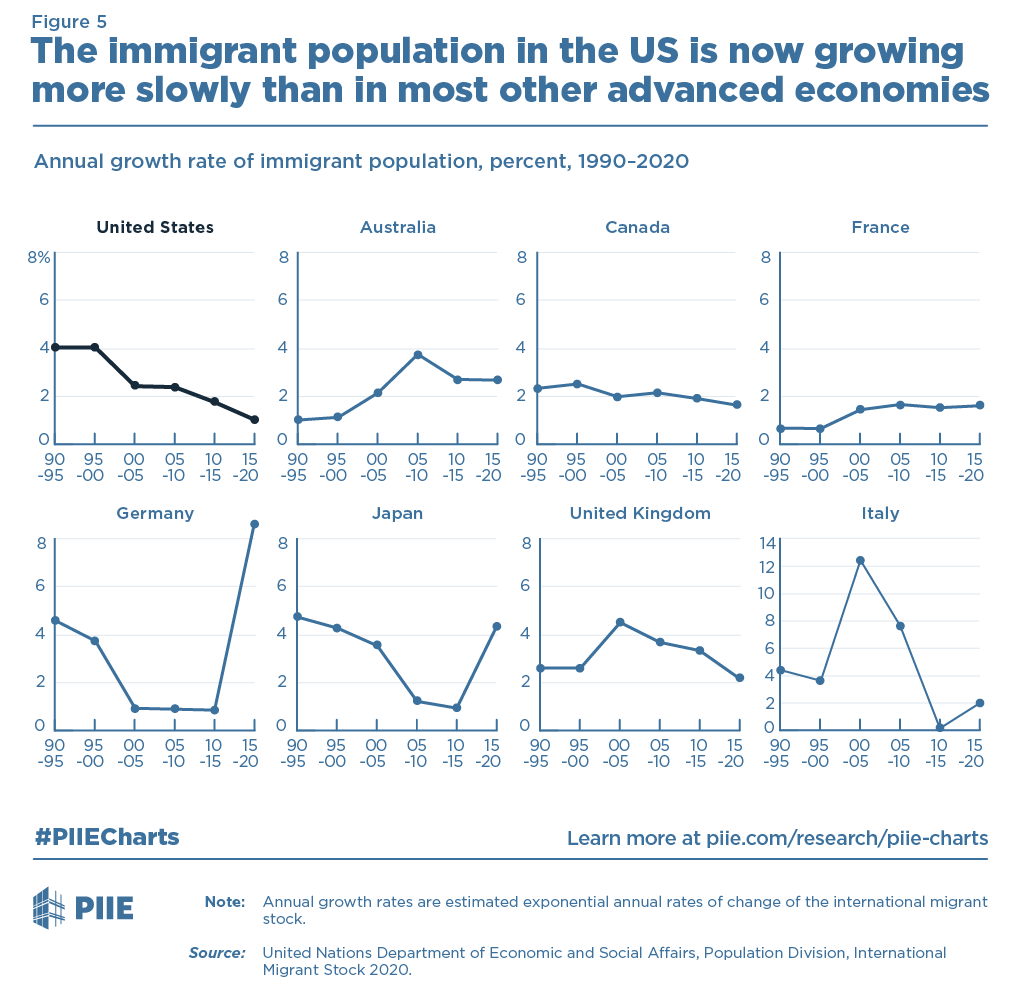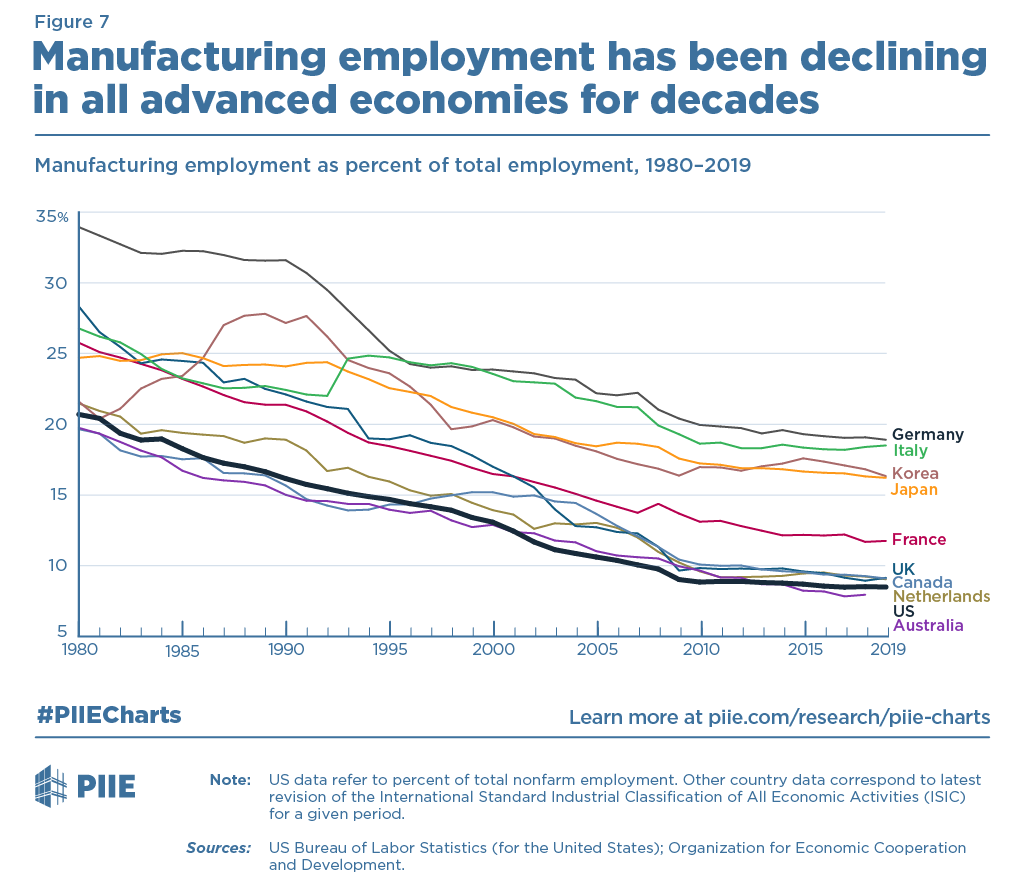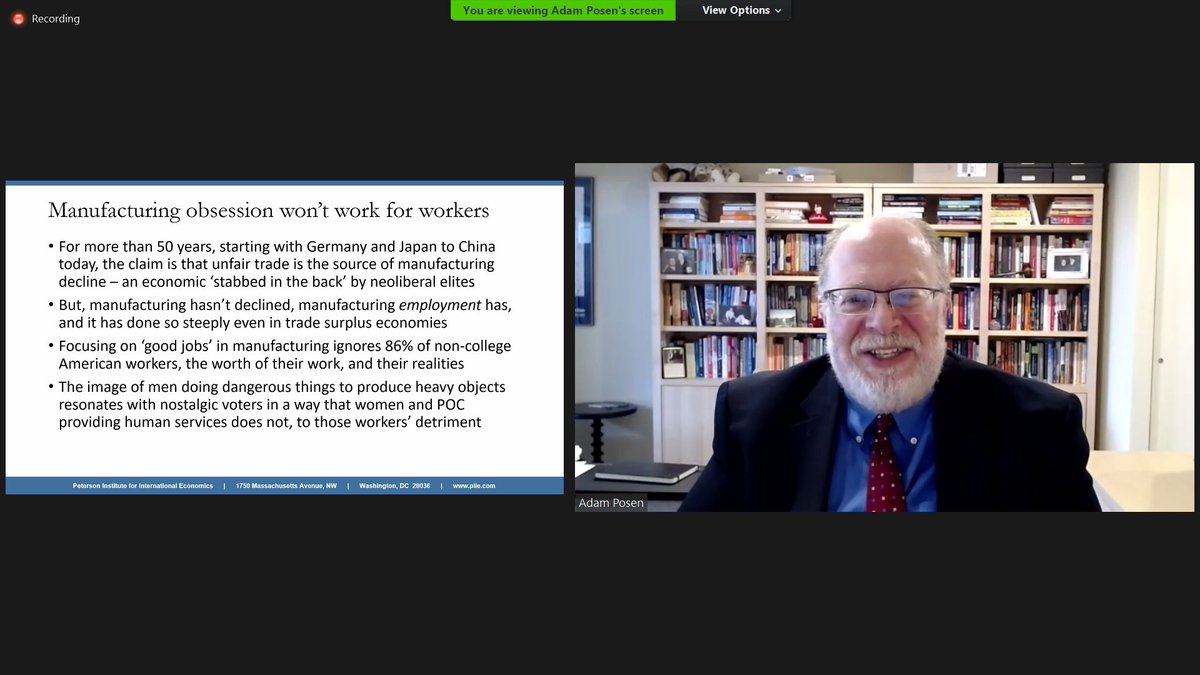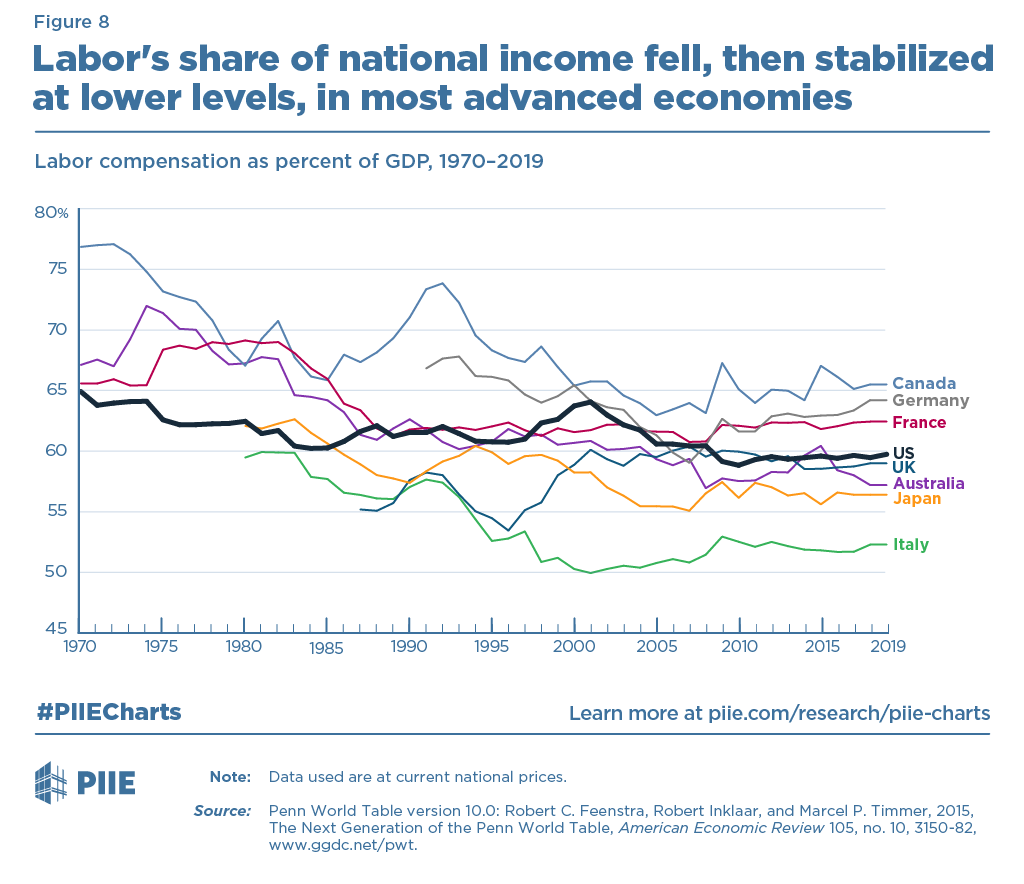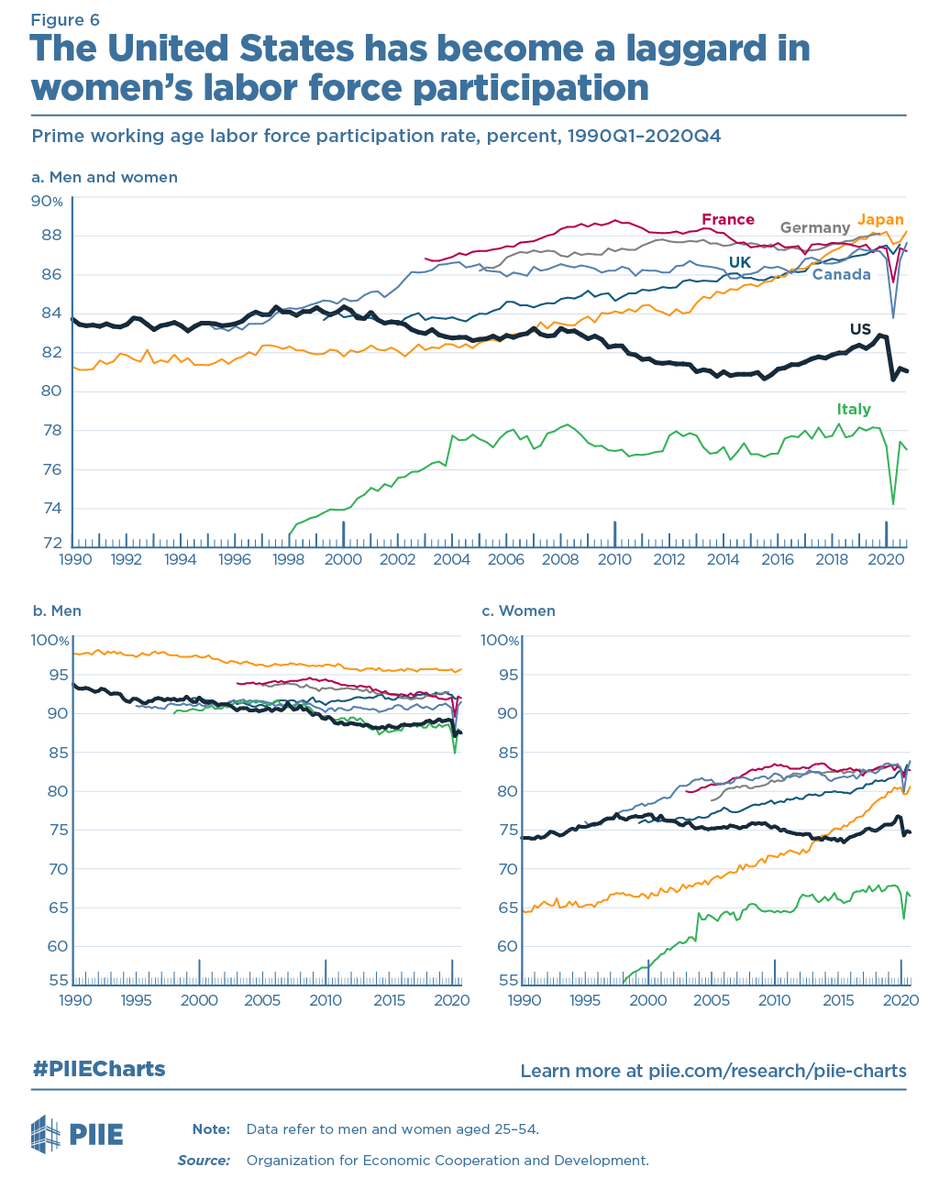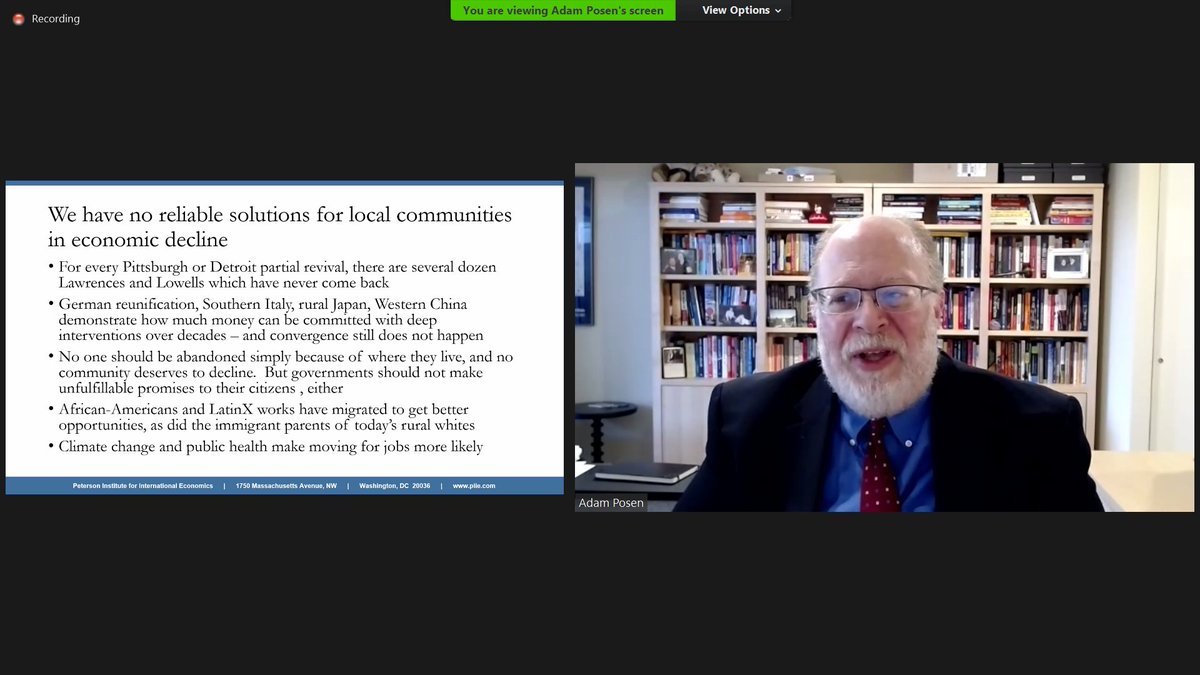NOW: @AdamPosen is discussing his piece "The Price of Nostalgia: America’s Self-Defeating Economic Retreat," challenging conventional wisdom about globalization.
Watch it live & follow along in this thread: https://www.piie.com/events/price-american-economic-nostalgia">https://www.piie.com/events/pr...
Watch it live & follow along in this thread: https://www.piie.com/events/price-american-economic-nostalgia">https://www.piie.com/events/pr...
Pursuit of ‘good jobs’ in manufacturing is not only doomed to fail, so doing will neglect and harm the 86% of lower-income workers in service industries, @AdamPosen says.
Once seen as a force driving increased global trade openness, the United States is now lagging behind international trade expansion, more so since 2000.
When measured by imports and exports as a share of its GDP, the United States has lagged behind not only the general trend of international trade expansion but also the upward trend in the other large advanced economies.
Foreign direct investment ( #FDI) into the United States has stagnated since 2000 after rapidly expanding from 1995 to 2000, @AdamPosen says.
He explains greenfield expenditures: https://www.piie.com/events/price-american-economic-nostalgia">https://www.piie.com/events/pr...
He explains greenfield expenditures: https://www.piie.com/events/price-american-economic-nostalgia">https://www.piie.com/events/pr...
US foreign-born population growth also began to slow in the 2000s. Average annual growth declined to 3.2% in 2000-06, fell further and stabilized at around 1.6% in 2006-15, before dropping even further to 0.9% in 2015-19.
In most advanced economies, annual immigrant population growth rates have been mostly stable over the last three decades, with some spikes like Germany in 2015-20.
Immigrant population growth in the United States has been declining since the 2000s.
Immigrant population growth in the United States has been declining since the 2000s.
Manufacturing hasn’t declined, *manufacturing employment* has, & it has done so steeply even in trade surplus economies. Focusing on ‘good jobs’ in manufacturing ignores 86% of non-college American workers, the worth of their work, & their realities
The image of men doing dangerous things to produce heavy stuff seems to resonate with nostalgic voters in a way that women providing human services does not, @AdamPosen says.
Watch: https://www.piie.com/events/price-american-economic-nostalgia">https://www.piie.com/events/pr...
Watch: https://www.piie.com/events/price-american-economic-nostalgia">https://www.piie.com/events/pr...
Labor’s share of GDP—the amount of a country’s GDP that workers get as compensation (wages, salaries, and benefits) in exchange for their work—began to decline in several advanced economies in the 1980s and has recently stabilized at lower levels.
Even after prime-age women’s LFPR rose starting in 2015 to 77% in the US by the end of 2019, it was still substantially lower than in every G7 economy except Italy. And the pandemic has made it worse.
Just as the statement “this is not who we are” in the face of racist violence lets the US off too easily, talk about the US as the most open, competitive, or opportunity-rich economy is self-delusion, @AdamPosen says.
Watch: https://www.piie.com/events/price-american-economic-nostalgia">https://www.piie.com/events/pr...
Watch: https://www.piie.com/events/price-american-economic-nostalgia">https://www.piie.com/events/pr...
Read the full argument here: https://www.foreignaffairs.com/articles/united-states/2021-04-20/america-price-nostalgia">https://www.foreignaffairs.com/articles/...

 Read on Twitter
Read on Twitter

